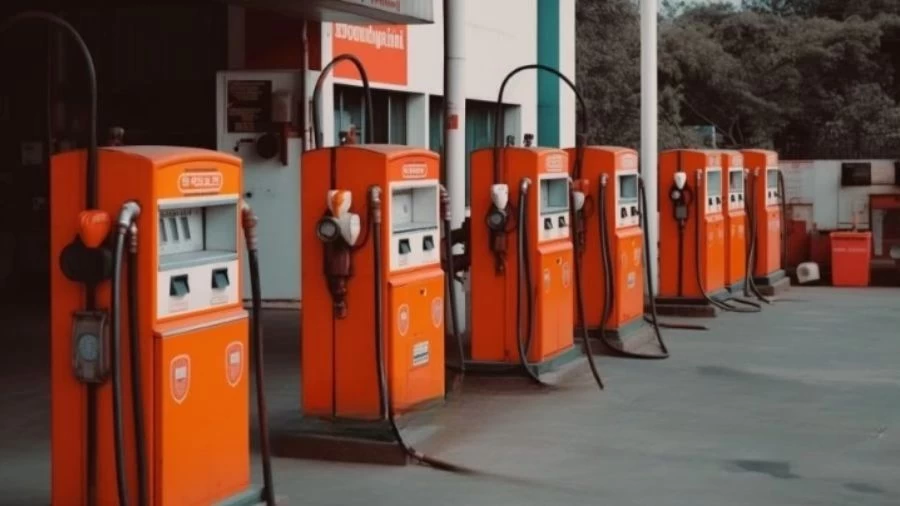
Is Diesel More Expensive Than Gas? Why is Diesel More Expensive Than Gasoline?
Diesel is generally more expensive than gasoline due to higher taxation, increased demand for its components in marine fuel, and geopolitical events affecting global supply.
by Kowsalya
Updated Dec 19, 2023
On This Page
Is Diesel More Expensive Than Gas?
Yes, diesel is more expensive than gas, and several factors contribute to this price difference. One significant factor is the higher taxation imposed by the U.S. government on diesel compared to regular gasoline. Diesel fuel is subject to a tax of 24.3 cents per gallon, while regular gasoline incurs a tax of 18.3 cents per gallon.
Additionally, the demand for diesel has increased due to regulations implemented by the International Maritime Organization in 2020, which tightened fuel standards for ships and other vessels. This led to the production of a new type of fuel called very low sulfur fuel oil (VLSFO), using distillate molecules that are also used in diesel production. As a result, the demand for diesel components surged, causing an increase in diesel prices.
Why is Diesel More Expensive Than Gas?
Diesel is more expensive than gas due to a combination of factors. First, the U.S. government imposes higher taxes on diesel compared to regular gasoline, with a tax of 24.3 cents per gallon for diesel and 18.3 cents per gallon for gasoline. Additionally, increased demand for diesel components in marine fuel production has driven up prices.
In 2020, the International Maritime Organization implemented stricter fuel regulations for ships, leading to the production of a new fuel called very low sulfur fuel oil (VLSFO). The distillate molecules used to make VLSFO are also used in diesel production, diverting some of the components that would have been used for diesel and contributing to the rise in diesel prices.
Furthermore, geopolitical events, such as Russia's invasion of Ukraine in February 2022, played a role. The U.S. responded by banning the import of Russian oil and petroleum products, including diesel, causing disruptions in the global supply chain. Since Russia is a major oil producer, removing it from the supply chain has led to a reduction in supply and higher prices for diesel and gasoline.
While there's been a dip in diesel reserves, the U.S. is not at risk of running out of diesel fuel. The national supply of diesel typically fluctuates, and despite disruptions caused by the pandemic and sanctions against Russia, diesel reserves have rebounded to around 29 days' worth. According to the Energy Information Administration (EIA), diesel prices are expected to decrease in 2023 and 2024, driven by slower demand growth and continued high production of gas and diesel. The EIA predicts the average cost of a gallon of diesel fuel to be $4.23 in 2023, down from $4.99 in 2022, with a further decline to $3.70 per gallon in 2024.
Is There a Diesel Shortage?
Yes, there has been a diesel shortage, but it's important to clarify that this shortage doesn't imply an imminent risk of running out of diesel fuel in the United States. The diesel supply in the country has been lower than usual, although it has not reached a critical level.
Traditionally, the U.S. maintains several weeks' worth of diesel in reserves, and this inventory fluctuates based on the balance between consumption, production, and imports. Historically, from 1991 until 2022, the U.S. typically had an average weekly supply of 35 days of diesel fuel on hand. However, during 2022 and the early months of 2023, this average dropped to 29 days, indicating a lower level of diesel in reserve.
Embark on a journey through the expansive universe of Finance by delving into the diverse and informative content offered at MarketsHost.
When Will Diesel Prices Go Down?
The forecast for a decline in diesel prices offers some relief as experts anticipate a decrease in the coming years. Various factors have driven diesel prices to unprecedented highs, including heightened taxation by the U.S. government, increased demand for diesel components in marine fuel production, and geopolitical events like the war in Ukraine disrupting the global oil supply chain.
Despite experiencing a dip in diesel reserves, the U.S. is not facing an imminent shortage. The Energy Information Administration (EIA) predicts that in 2023, the average cost of a gallon of diesel fuel will decrease to $4.23 from $4.99 in 2022, driven by a combination of slower demand growth for diesel and continued high production of gas and diesel. The EIA further forecasts a continued decline in diesel prices in 2024, reaching $3.70 per gallon.
What Are the Differences Between Diesel and Gas?
Diesel and gasoline are two common types of fuels used in internal combustion engines, and they have several key differences, both in their composition and how they are used in engines. Here's a detailed breakdown of the differences between diesel and gasoline:
Composition and Usage
- Diesel: Derived from the same crude oil as gasoline but refined differently, diesel is denser and more energy-dense. It is used to power a wide range of heavy-duty vehicles, including trucks, buses, ships, and industrial machinery.
- Gasoline: Primarily used to fuel personal vehicles, such as cars and motorcycles, gasoline is less dense and lighter than diesel. It is ignited in internal combustion engines using a spark plug.
Demand and Efficiency
- Diesel: In high demand globally due to its superior fuel efficiency, diesel powers essential transportation modes like trucks and trains. However, oil companies often prioritize gasoline production for faster profits.
- Gasoline: While demand for gasoline is significant, especially for personal vehicles, it is often produced in larger quantities than diesel due to the emphasis on gasoline production by oil refineries.
Historical Price Trends
- Diesel: Traditionally considered a more affordable alternative to gasoline, diesel prices surpassed gasoline prices in 2004. Recent regulations addressing diesel emissions have contributed to increased refining costs and prices.
- Gasoline: Historically, gasoline has been a primary fuel for personal vehicles, and its prices have traditionally been lower than diesel. However, market dynamics and regulatory changes can impact gasoline prices.
Environmental Impact
- Diesel: Historically associated with higher emissions, especially sulfur dioxide and nitrogen oxide. Modern diesel fuels have become cleaner due to regulations, significantly reducing harmful emissions.
- Gasoline: Generally considered cleaner than traditional diesel due to historically lower emission levels. Environmental regulations and advancements have contributed to further reducing emissions in gasoline-powered vehicles.
Production Cost and Regulation
- Diesel: In the past, diesel was more cost-effective to produce. However, increased environmental regulations have led to higher refining costs.
- Gasoline: While historically more straightforward to produce, ongoing environmental regulations have influenced refining processes, impacting production costs.
Combustion Process
- Diesel: Ignited through extreme pressure and compression in diesel engines.
- Gasoline: Ignited by a spark plug in gasoline engines.
Is Diesel More Expensive Than Gas - FAQ
1. Why has diesel become more expensive than gas in recent years?
Factors like higher taxes, stricter regulations, and geopolitical events contribute to diesel's higher cost.
2. What are the unique advantages of diesel fuel?
Diesel offers higher energy density, better fuel economy, and is widely used in heavy-duty vehicles.
3. Is there a scarcity of diesel fuel in the USA?
While diesel reserves fluctuate, there is no immediate risk of running out of diesel fuel.
4. When can we expect diesel prices to go down?
The EIA projects a decline in diesel prices in 2023 and further in 2024 due to slower demand growth and increased production.
5. How did diesel prices surpass gasoline in 2004?
Stringent emission regulations led to cleaner diesel but also increased its production costs and subsequent prices.




